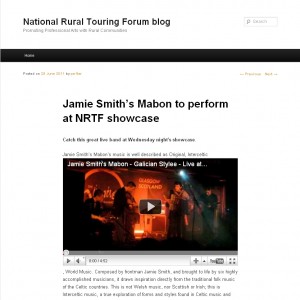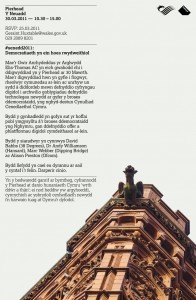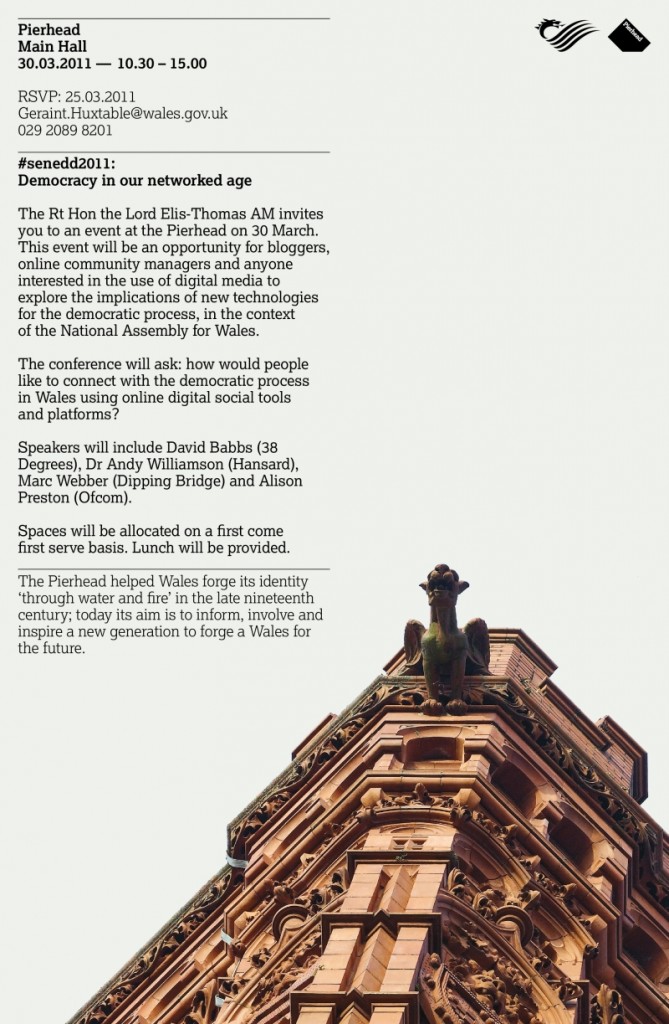To make art with technology, one does not use it as a tool; one must understand it as a material. Technology is not always a tool, an engineering substrate; it can be something to mould, to shape, to sculpt with.
Materials have desires, affordances, and textures; they have grains. We can work with that grain, understanding what the material wishes to be, wishes to do – or we can deliberately choose to work against it. We must understand that grain and make a deliberate choice. […]
Thought-provoking short essay about art and technology by Tom Armitage which I’m still pondering.

 I’m working with National Rural Touring Forum at the moment. In their words they’re:
I’m working with National Rural Touring Forum at the moment. In their words they’re:

The Digital Scholar by Martin Weller
Martin Weller is an OU professor who we first met through our Trydan cafe events. I’m currently reading his new book The Digital Scholar for his insights on the use of digital media in education and research. As with Martin’s excellent blog there will doubtless be things applicable outside of education. What I expect I’ll do is carry on reading it online for free at the Bloomsbury Academic site until my eyes hurt and then invest in a paper version of the book. Join me.
Incidentally now and again people ask me what’s happening with Trydan. I’d say it was on indefinite hiatus at the moment, unless anyone wants to start them again. Although they only lasted for around a year, the open gatherings were an invaluable way to meet people and swap ideas across different fields. And of course many of those people are still in contact.